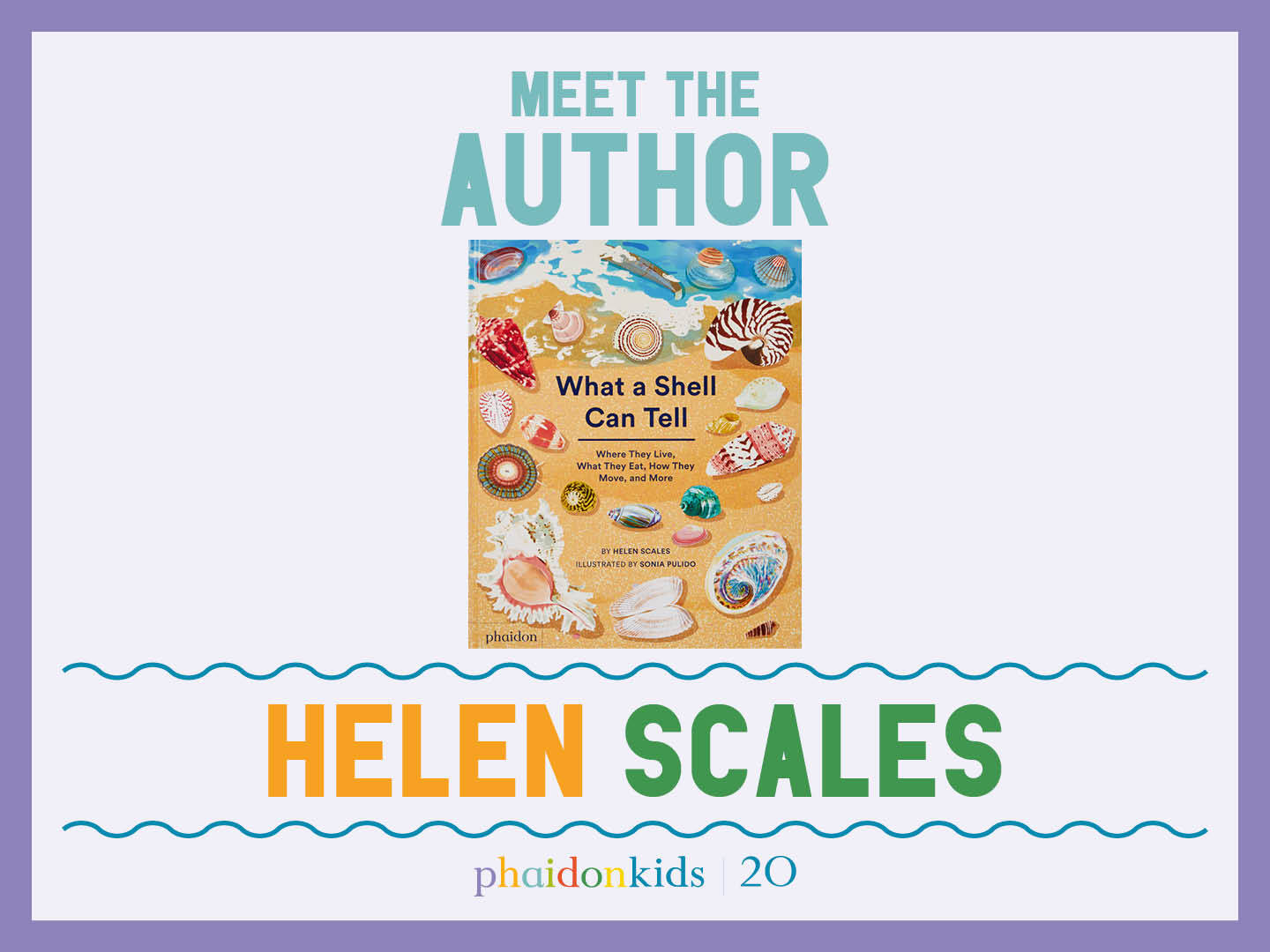
Meet the Phaidon Kids author - Helen Scales
Our What a Shell Can Tell author combines a diver’s devotion to exploring the oceans, a scientist’s attention to detail, and a storyteller’s obsession with words and ideas.
The aptly named Dr Helen Scales has a thing about fish. The marine biologist, writer and broadcaster has a PhD in marine biology from Cambridge University where she studied the conservation of reef fish and the international trade of marine life; she’s a scuba diver, with more than 300 hours logged underwater, a cold-water surfer and freediver, and she’s lived and worked in Madagascar, Malaysia, Senegal, The Gambia, Australia, Fiji and the Philippines.
Her career spans academic research, environmental advocacy, and science communication. She has worked with organisations such as the World Wide Fund for Nature (WWF) and TRAFFIC, focusing on marine conservation and sustainable fisheries.
And her ability to spark imagination while grounding her stories in real science has made her a beloved figure in children’s nonfiction. Her books have been adapted for stage and screen, and translated into 16 languages. They include Phaidon’s global bestseller What a Shell Can Tell and Shells... and What They Hide Inside.
In her own words, “There often is a lot more behind what you see on the pages” of her books. “Across the airways and in print, my work combines a scuba diver’s devotion to exploring the oceans, a scientist’s attention to detail, a conservationist’s angst about the state of the planet, and a storyteller’s obsession with words and ideas.”
She writes regularly for the Guardian, teaches at Cambridge University and is a storytelling ambassador for the Save Our Seas Foundation. She divides her time between Cambridge, England, and the wild Atlantic coast of France.
To celebrate 20 years of Phaidon Kids, we’re talking to a number of the illustrators and authors behind our brilliant children’s books. Once you've read our interview with Helen take a look in the Phaidon Kids store and check out her website .
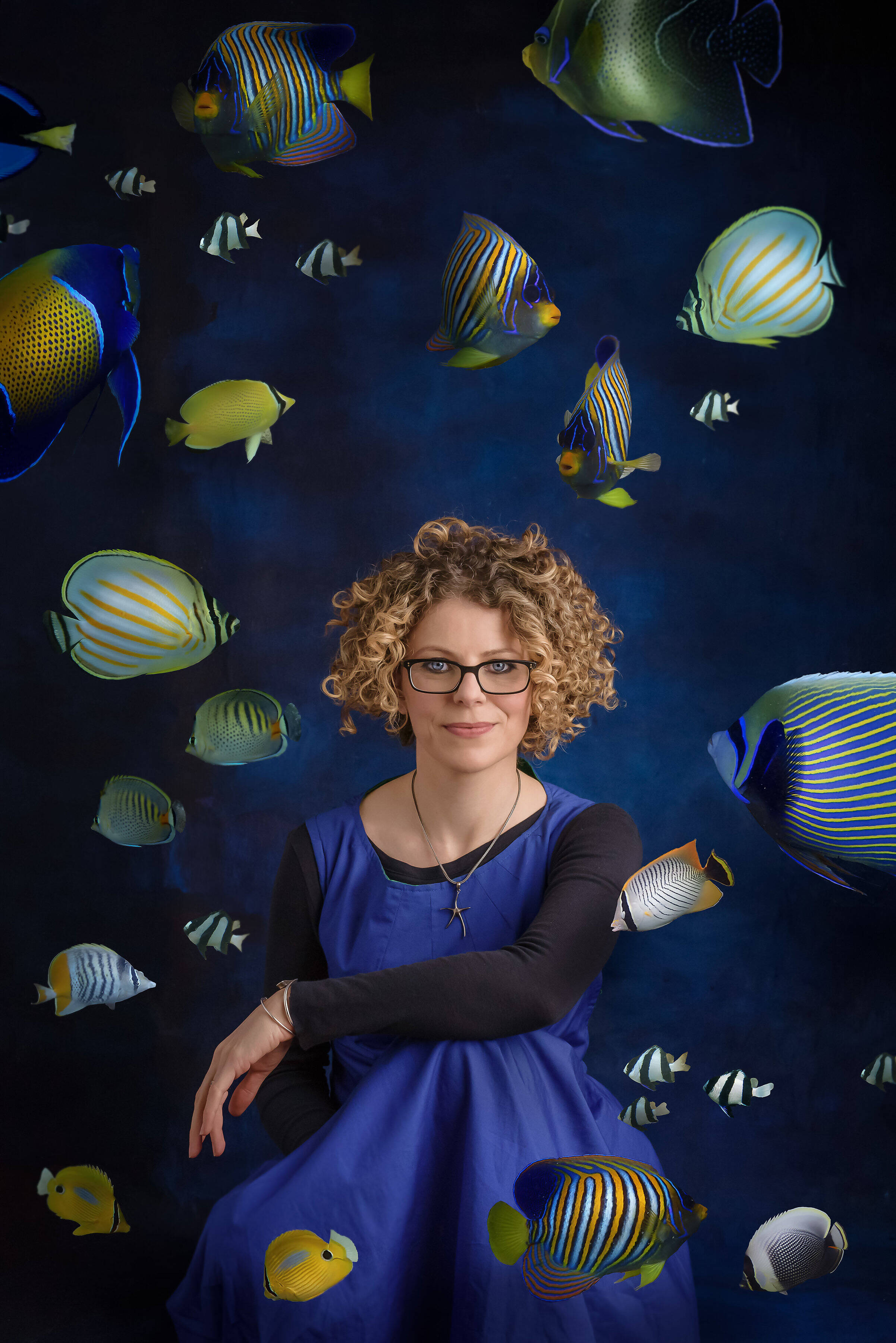 Dr Helen Scales. Photo by by Ria Mishaal - all illustrations below by Sonia Pulido
Dr Helen Scales. Photo by by Ria Mishaal - all illustrations below by Sonia Pulido
You were a scientist then moved into writing how did that happen? It's one of those things that I look back on think why did I decide that? But it's so great and I love it so much and I'm so glad I did. I came out of being a scientist and doing my own research, doing my PhD, but I wanted to write for more people than my audience, which was a few scientists. So that was very deliberate decision.
The children's writing started by consulting. I started being asked to check books that other people had written for their factual accuracy; to check that the science was right. I think that's what really showed me what kids' books could be. Until then it hadn't ever really occurred to me that I could do that. But when I started looking at what other people were doing in the nonfiction realm and seeing this wonderful combination of words and pictures, I thought, that makes perfect sense for me to do that.
All the writing I do comes from that place in me that is excited by the world around me and always has been – for as long I can remember. This is just my way of sharing that love of nature and, in particular, of aquatic parts of nature. The underwater world is what really excites me and thrills me.
So, all the work I do is to try to kind of capture that and pass that on, and doing so for children was not as different as I was expecting it to be. It came very naturally to me.
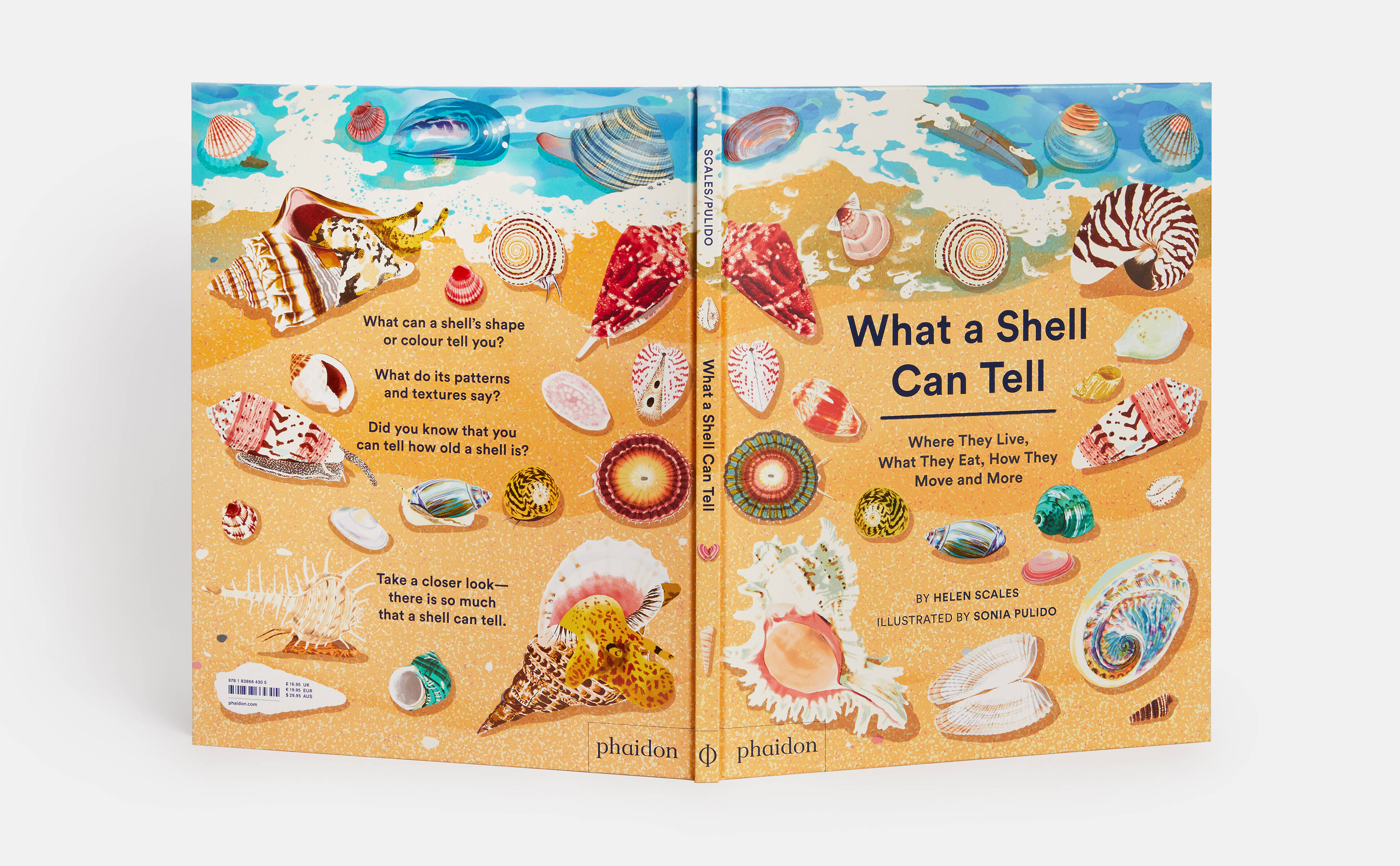
Was there a book in your childhood that led you down this path? Yes! The What- a-Mess books by Frank Muir and Joseph Wright. I don't know how famous they were, but I loved them. I loved the illustrations. There was so much going on.
Every page has just got stories within stories happening, and all these little characters. There was an Afghan hound with all these creatures living in his fur, and they were all up to their own things. I loved looking for those little details on the page, watching the ants doing what they were doing. It was so rich.
Looking back now, as someone who went off and studied science and ecology, I realise that it was that kind of level of observation and detail that I've always really been drawn to, that kind of drilling down into those little details.
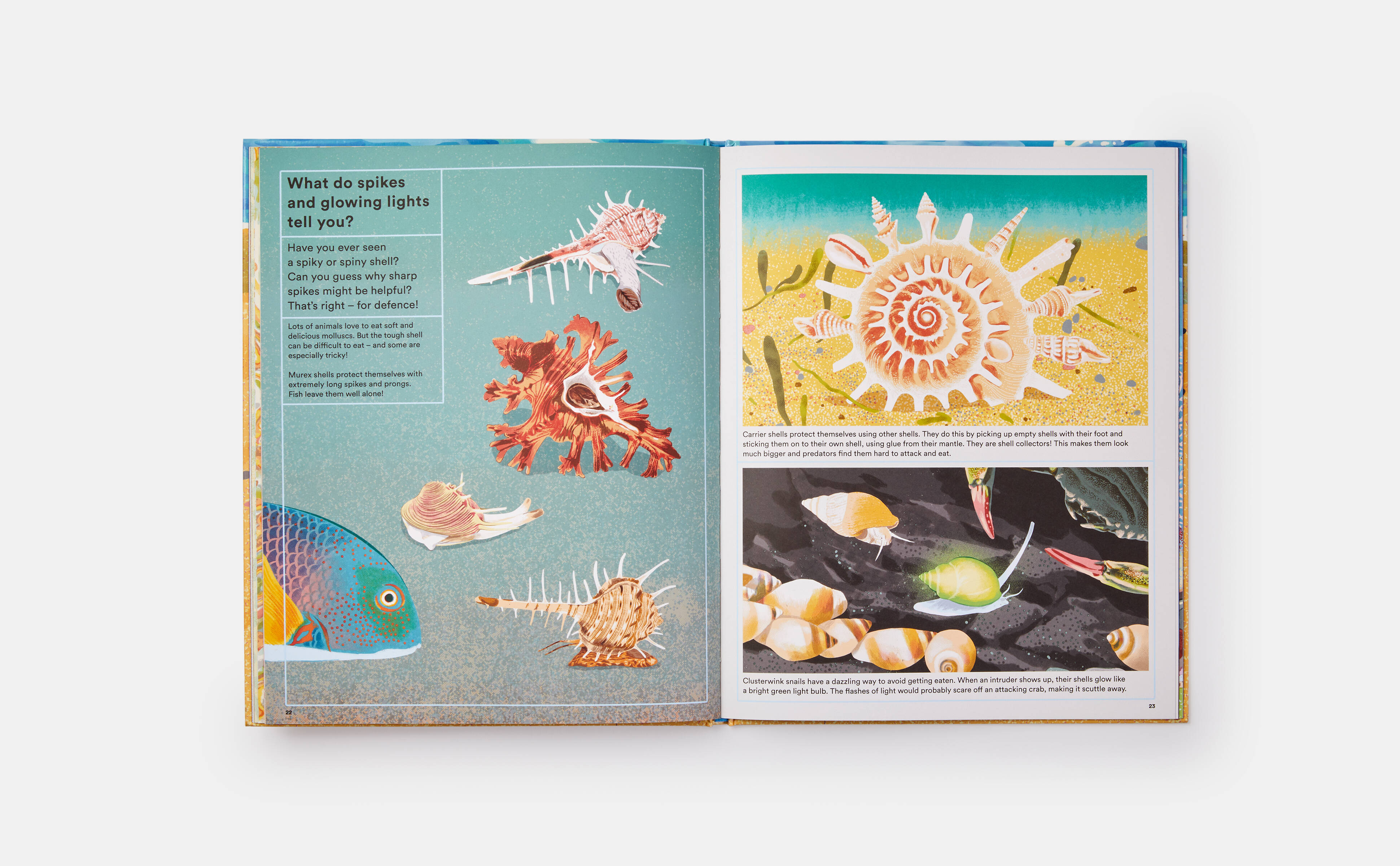
Your two Shells books are for very distinct ages how did you adapt your approach for them? You can really think about Shells and What They Hide Inside as the baby that emerged from What a Shell Can Tell. It’s the same material, it's the same subject, but it's kind of almost like we reached inside of What a Shell Can Tell and decided which bits to draw out for younger children.
It wasn't a huge difference in the sense of what we were saying, just how we we're saying it. For instance, for the younger one, we just focused on two very familiar places where you can find shells, like beaches and gardens, whereas What a Shell Can Tell has got deep sea hydrothermal vents and kelp forests, and all these exotic coral reefs and things like that.
The steepest learning curve was working out how to use the reveal of the flaps to their greatest effect Normally as a writer, you're thinking, OK, the kid's going to open the page, they're going to see the pictures. They'll look at what they want to look at and what they want to read, but that will all be in front of them. Whereas with the flap book you're not just turning the page over. they've very much got more control over what things they want to reveal and look at.
So, thinking about how that works was really a fun challenge. And then to finally see it working when the flaps were doing what they were supposed to do was such a joy. Just lifting the shells up and seeing more and more things underneath. I love that potential reveal of ideas. It really was perfect for the shell book because it's all about looking and finding and that's exactly what the characters are doing in the book.
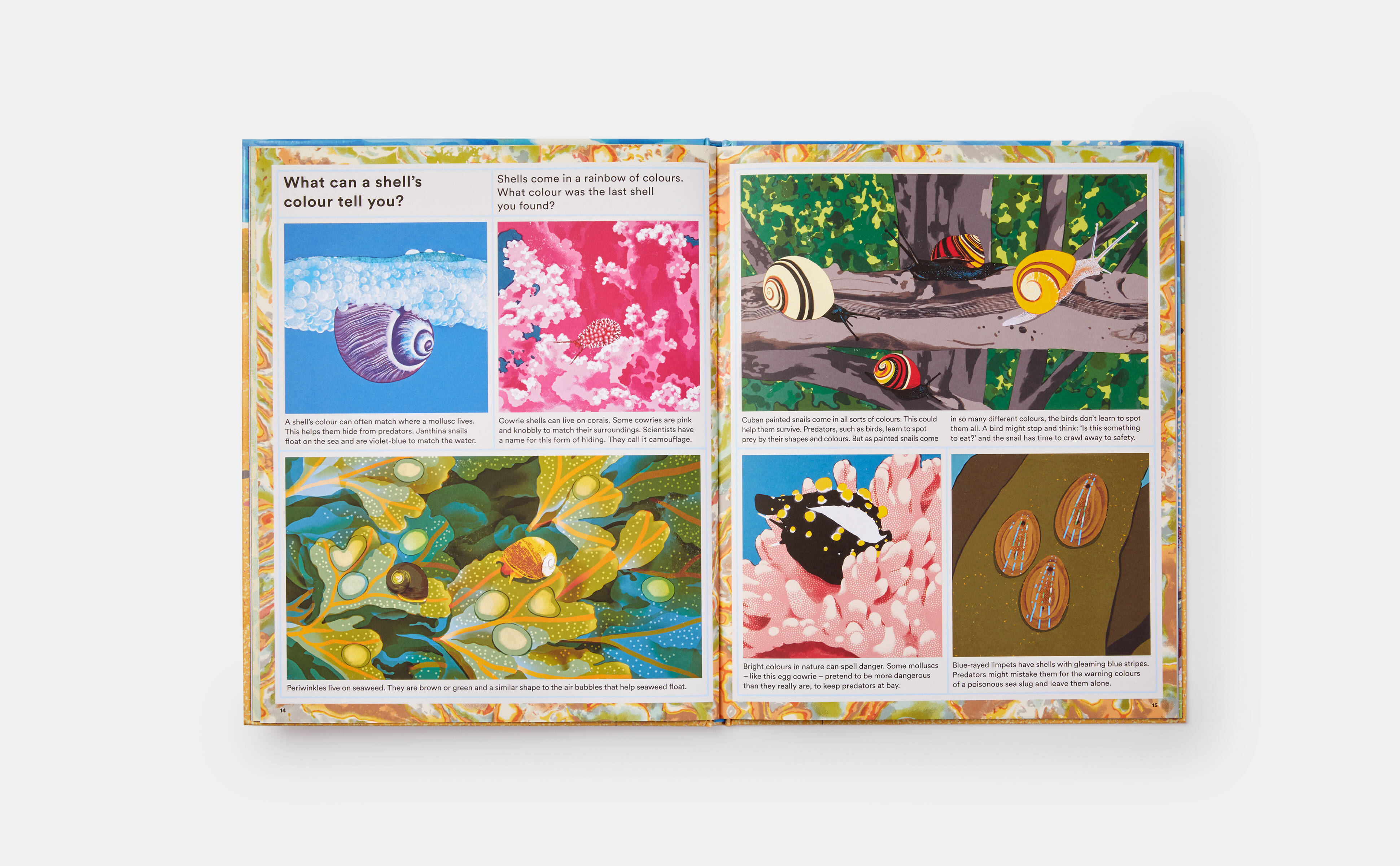
What are the things that makes a great, not just good, children’s book? There are so many different ways that children's books can be fabulous. I think the common thread between all of them can be a bit nebulous, but it's the way in which a combination of words and pictures effortlessly transports readers into a space of wonder. That can be an imaginary place that actually exists, or it can be a different way of looking at the real world around us, whether you're sailing over the waves, looking for where the wild beasts are, or you’re a hungry caterpillar turning into something else.
It’s all about putting the reader into that space of curiosity and wonder. It's that slightly alchemical mix of words and pictures. I don't know if I can put my finger on exactly what way that magic works but when it does it’s the best and readers just tumble into the page.
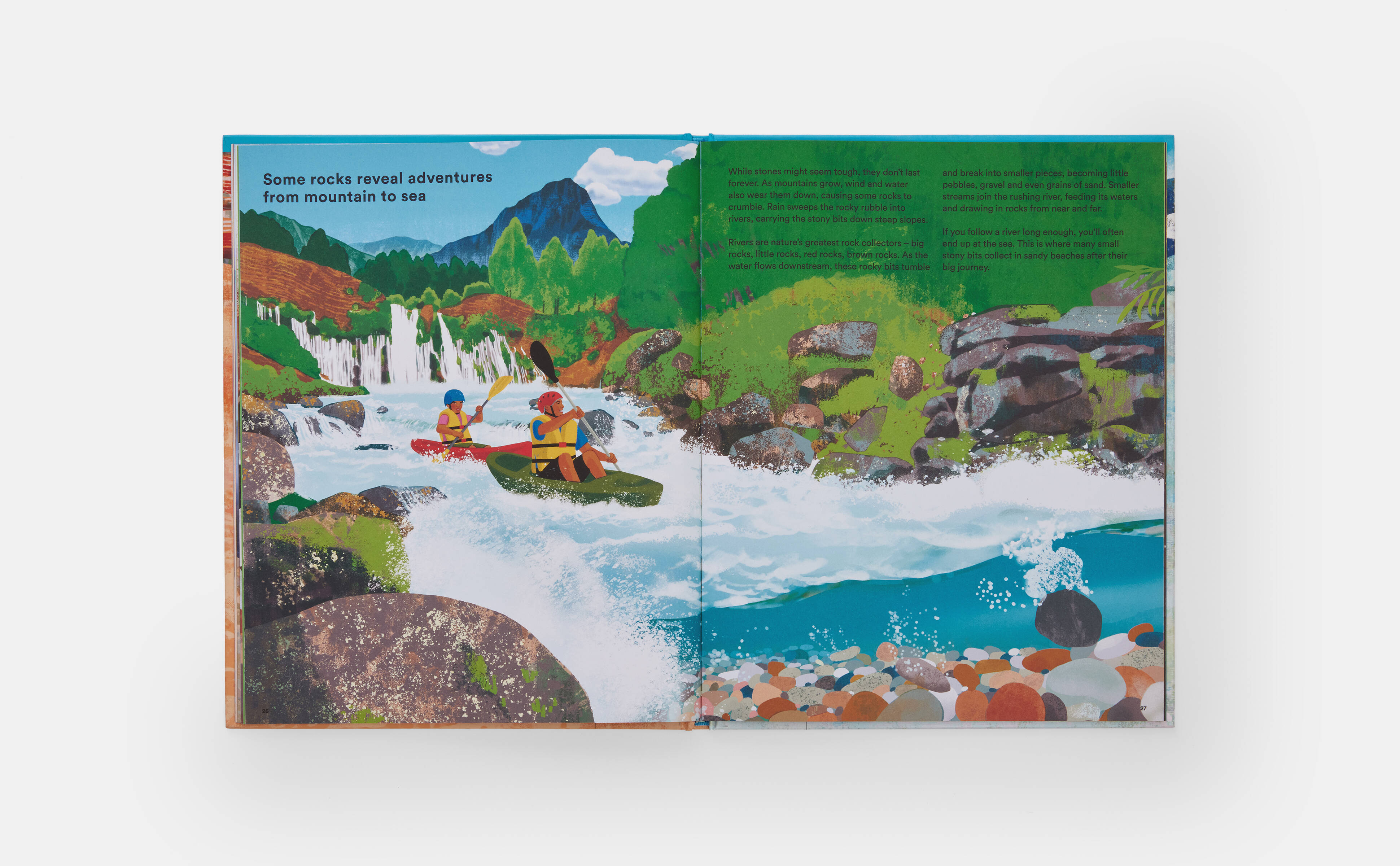
How do you go into that world yourself, what's the spark for your ideas? Being out in nature, swimming, diving, walking, going to museums. When I'm looking at scientific ideas or art ideas - just absorbing what's around me. Visually a little thing will spark from that. Often it will be a little detail in that world that will make me think, oh gosh, wouldn't that be a cool story about how animals in the sea change the way they look so radically between being a baby and an adult. I’ve never thought of that but look how weird they look when they were babies and now they look like this - perhaps that could be something we could do.
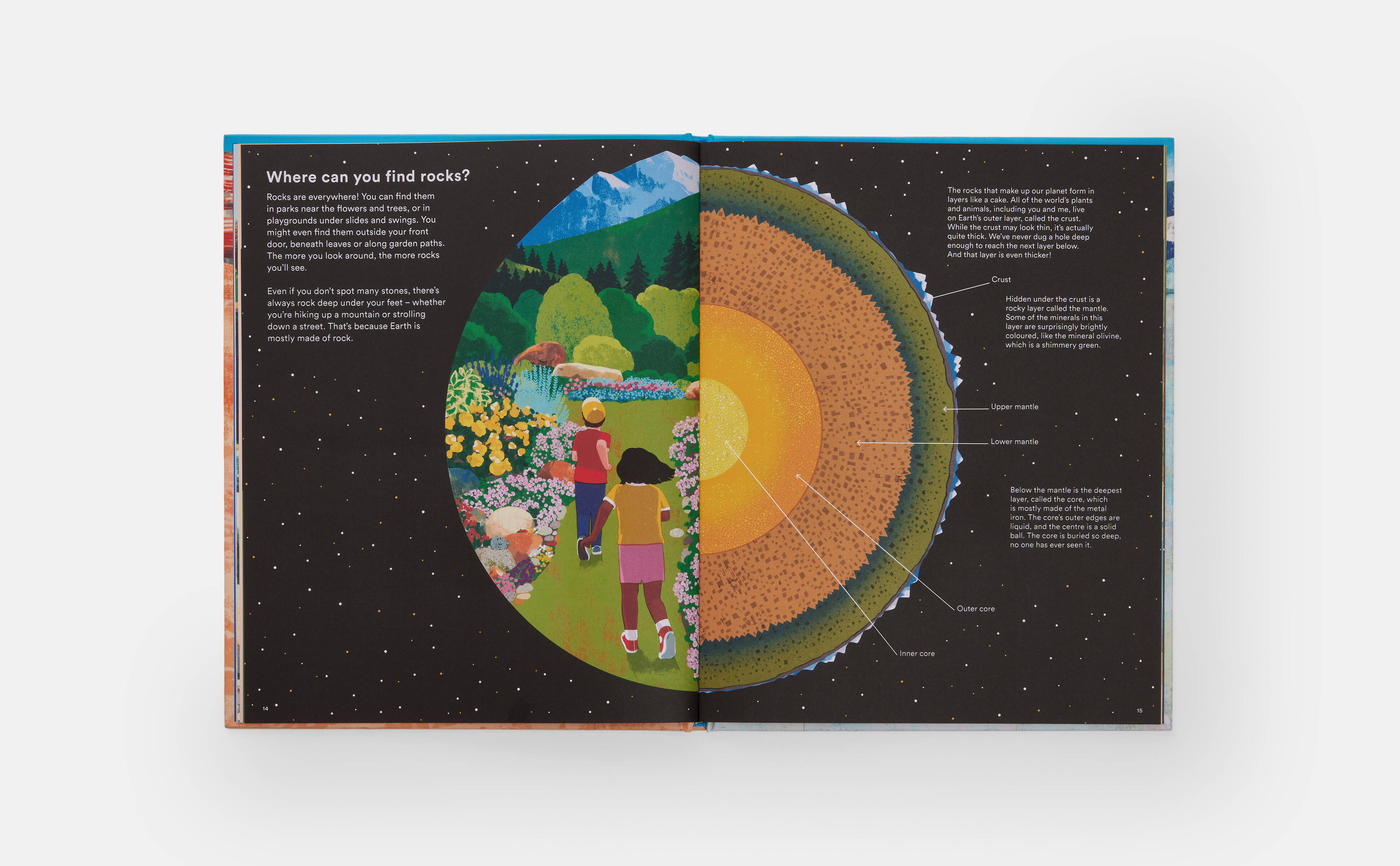
Do you keep up to date with the latest scientific research? Yes. I really enjoy finding out the latest discoveries and science that's being published, reading papers, and seeing what scientists are putting out there, then finding the stories in those and putting them into my books, whether it’s by putting the science in the hands of a scientist character in the book, or just by arranging the story around discoveries or facts that are being found at the moment.
I really love that. I could give you an academic reference list for each of my books. There's nothing more exciting and inspiring than what people are discovering and working out around the world right now. There are people finding out the most incredible things about our planets and what lives there and how it works. Finding those new insights and putting them into books is such rich ground for me.
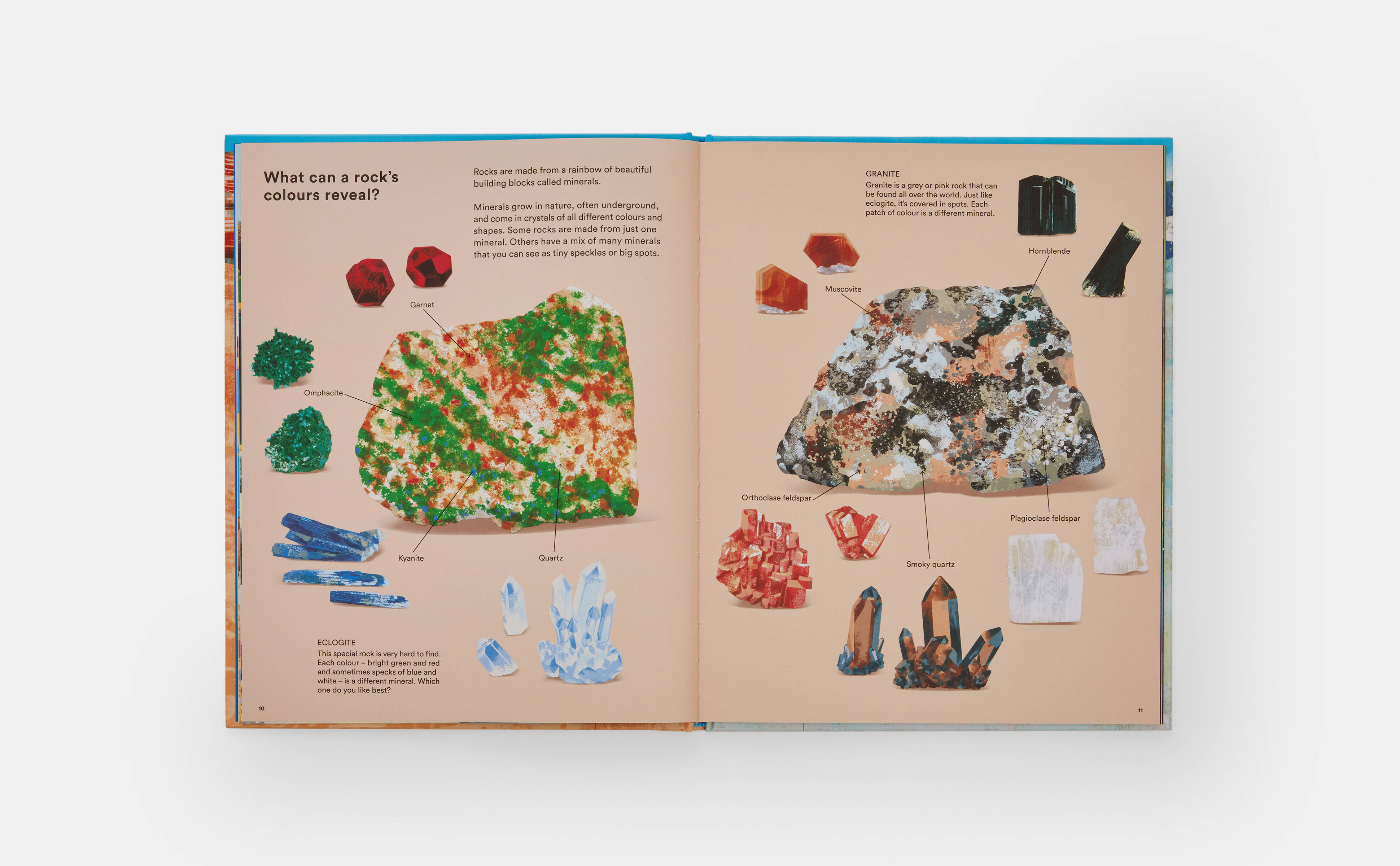
How tough do you have to be with illustrators? We’re guessing you’re quite particular! I always want to get everything right for all my books, that comes from my background as a scientist. And so, any illustrator I've worked with will tell you there have been times when I've said, ‘oh, no, that fish isn't quite like that, and you need to move that spot here, and that's a little bit too green and it needs to be a bit more yellow.’ I’m very particular about getting those identifying marks or that the environment's correct.
Even if they're something that's very stylized and different from reality, there's always that factual accuracy that I want to get absolutely right and spot on in everything I do.
In terms of what you have to get right in terms of storytelling, I think you've just got to jump right in. Whereas perhaps for older readers, I might set the scene a bit more and I might introduce them to the place. With kids' books you just must jump in and go for it. It's very immediate. You've got to grab those audiences because otherwise they walk away. You've really got to just hit the ground running. They’re the toughest, and the best, audience!
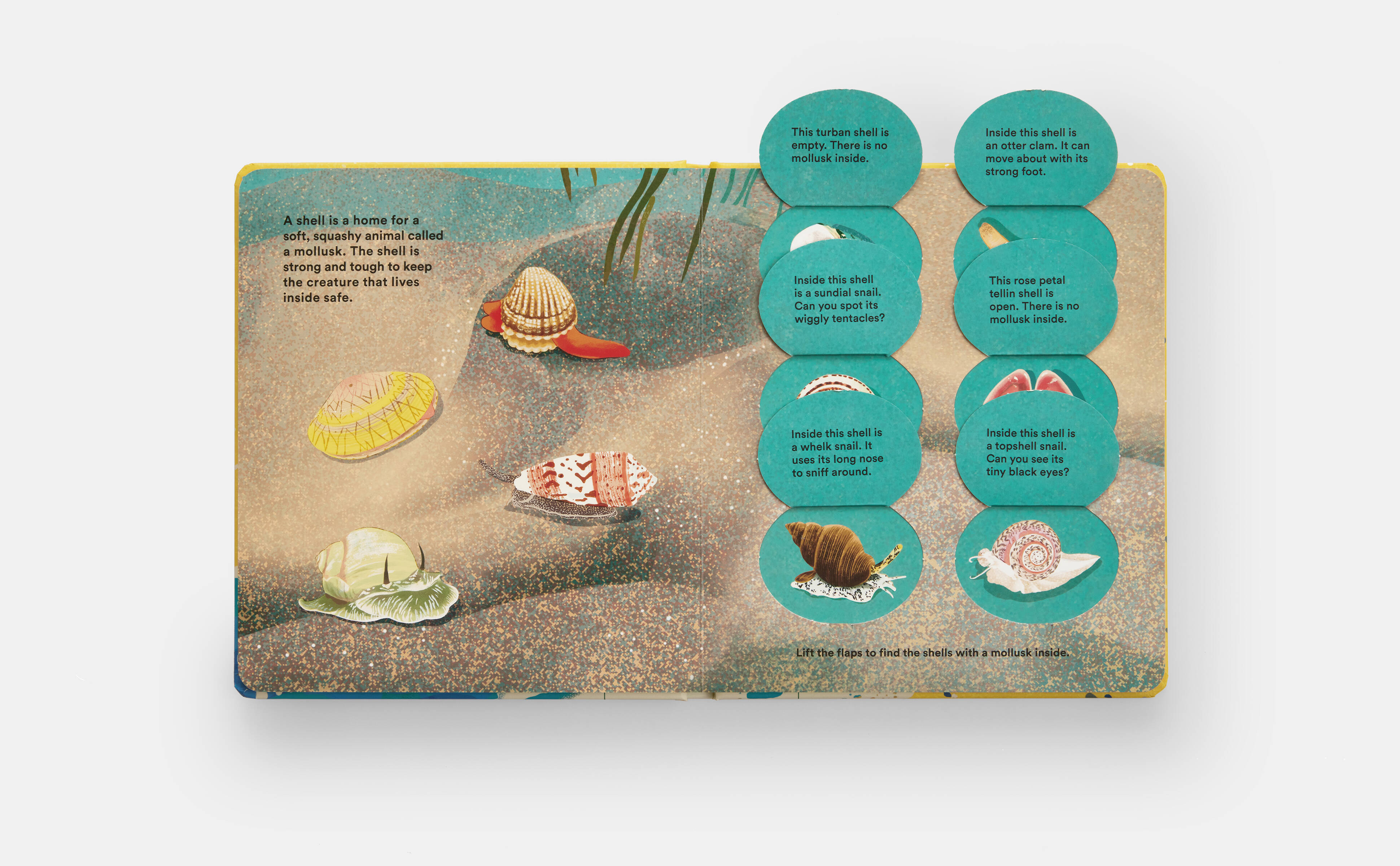
Do you have a kid in mind when you write? I have nephews and nieces and kids of friends of mine who I ultimately hope will read and enjoy the books, but to be honest, I'm not actually thinking of an individual person when I'm writing. If I am, I think it's just a mix up of all of the kids I know and love who share the love I have of nature and of the undersea world.
But I suppose if there was one, it would be a an idealized very well-behaved young thing sitting there hanging on my every word, not wandering off going to play with light sabres which happens a lot with the real children that I know!
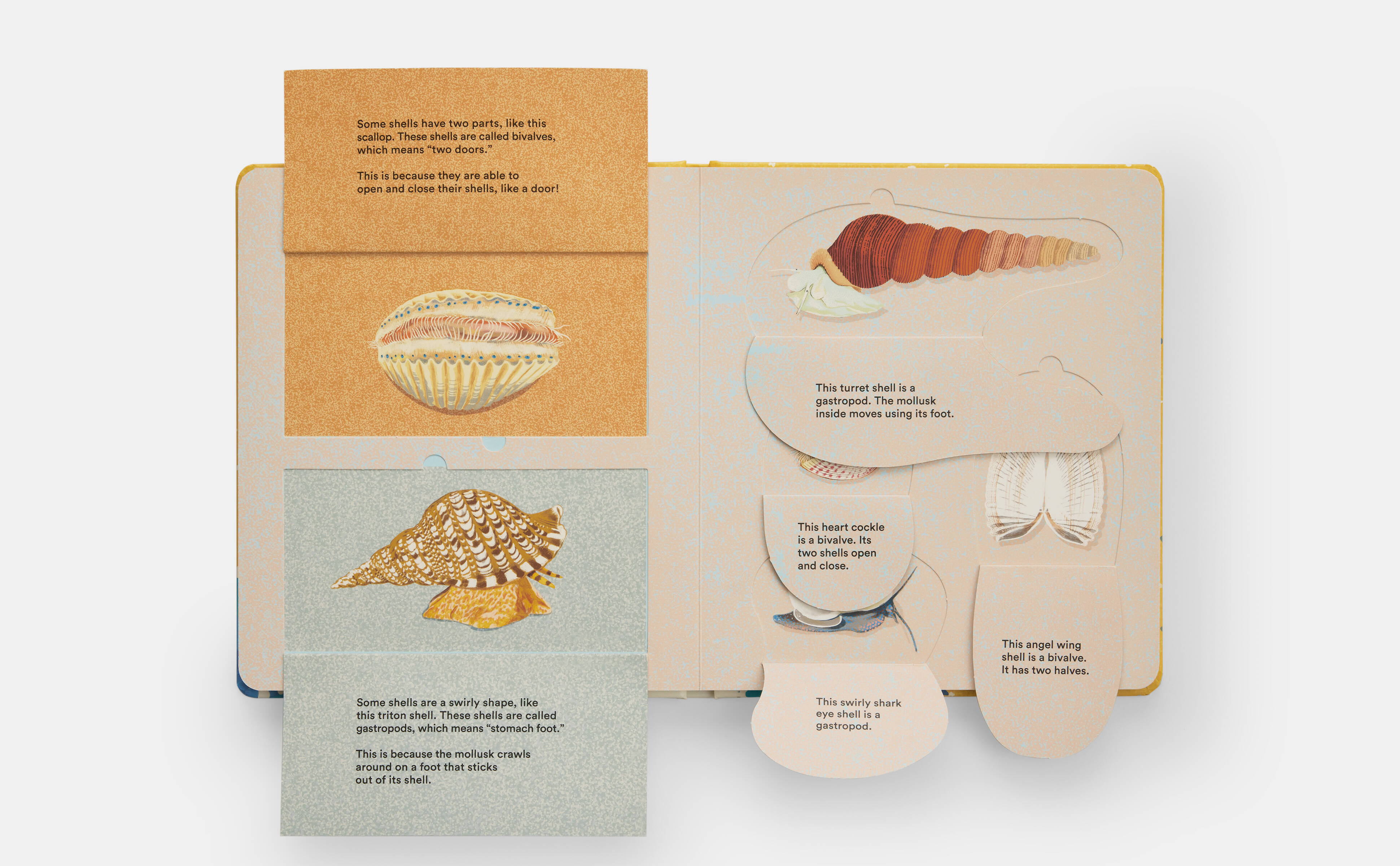
How do you plan the books out? I am a real planner, and you must be for kids' books too, because obviously you've got the illustrations in mind down the line, but I like to plan things out, often in quite some detail before I start writing. It starts with a place or a species or a scenario of some sort.
For me, I find starts and endings really important. I need to know how I'm starting a thing, and I need to know how I'm ending it too. I always want to have an in and out. I need to know how I'm going to get in here, get things going and how I'm going to leave things at the end.
There's nothing worse, I think than a bad ending or a disappointing ending. I find the same with music, I listen to a lot of music while I'm working. I love music, but I find it very annoying if the song doesn't end properly and it just fades out or the ending is bad, or just a wrong chord at the end.
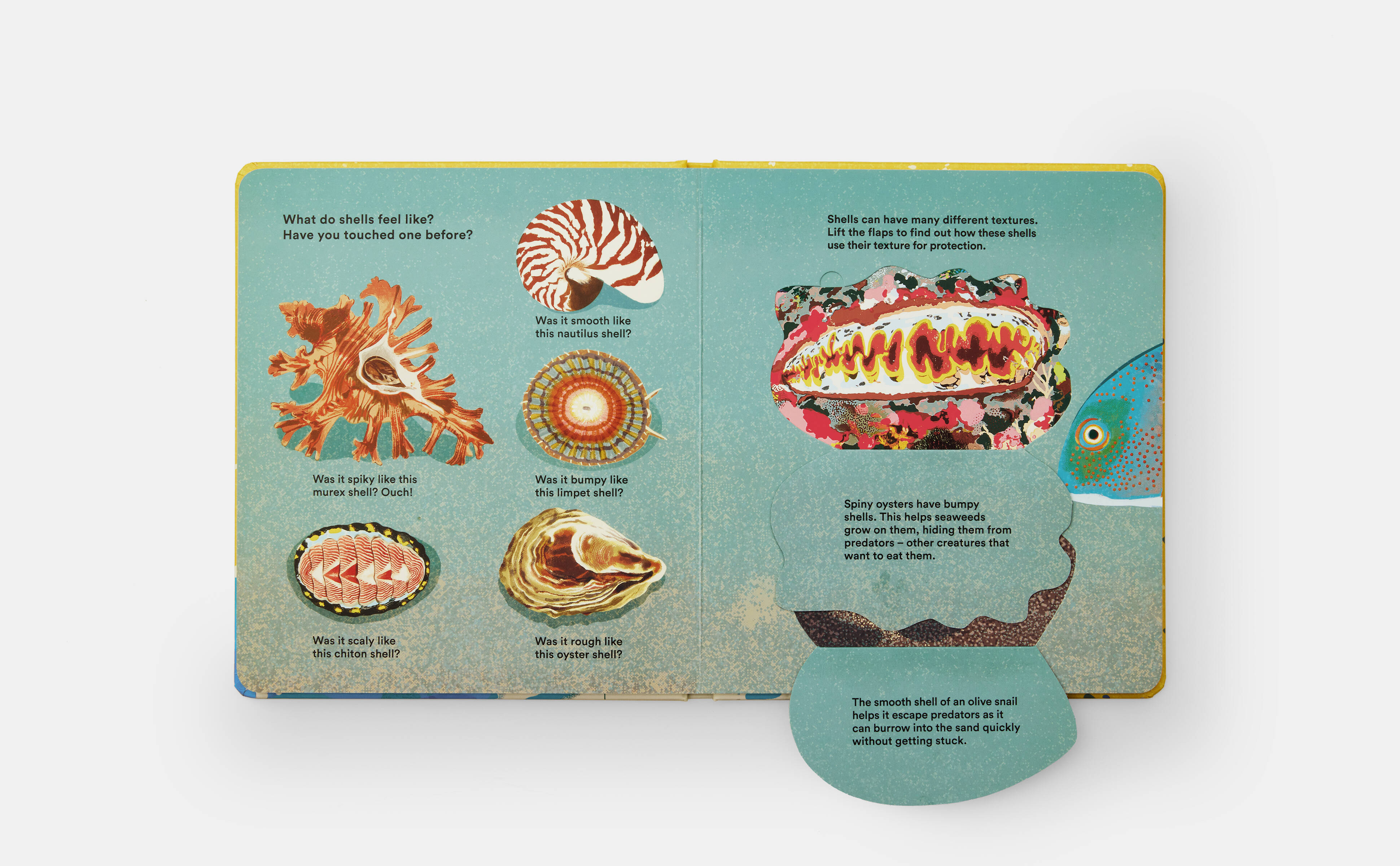
How do you juggle the various parts of your professional career? It all seems to be working in a very nicely with all these different elements connecting to each other at the moment. I'm very lucky to be doing that.
There are usually a few things going on at the same time and things come off of them, all of which are unexpected and wonderful. I ended up doing a game a computer game about seashell collecting, I've written documentary scripts. There's a lot of cross cultivation. So, I'm doing other creative projects coming off of the writing.
I'm constantly amazed and delighted by how people respond to the Shells book. I think it's really found its way into many people's lives. I've had so many parents and adult readers tell me they've learned a lot from it!
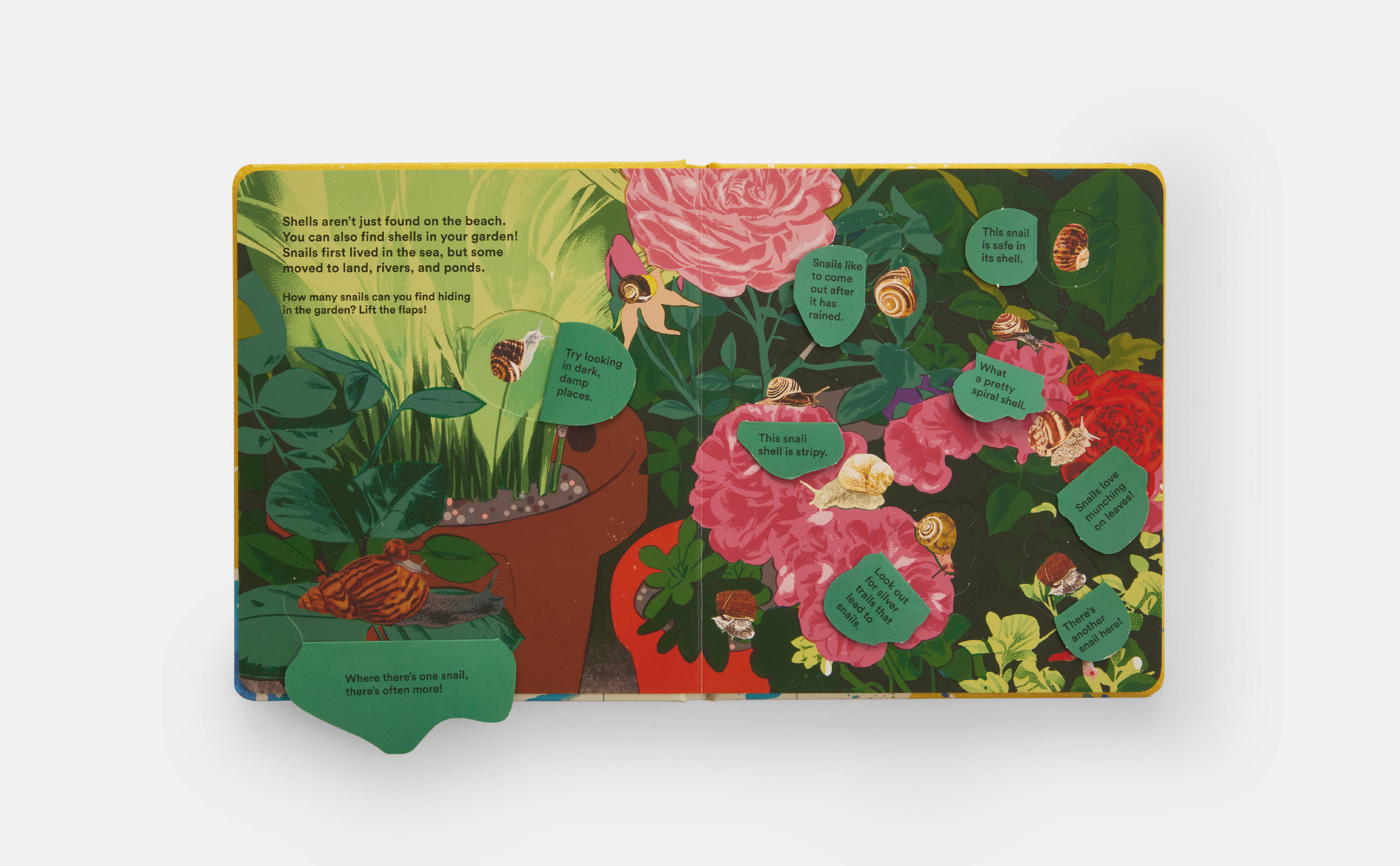
Take a look at What a Shell Can Tell and Shells... and What They Hide Inside